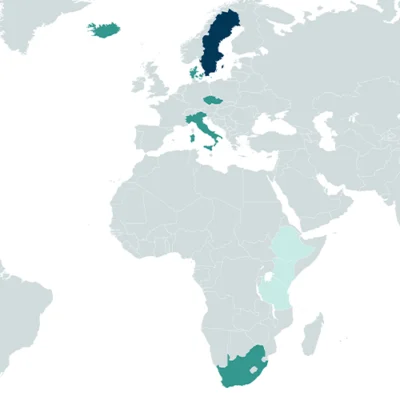Increasing Sustainability of Agribiologicals by Living labs in sub-Saharan Africa
Call
Duration
01/04/2025 – 31/03/2028
Total grant
Approx. 1.6 mil. €
More information
Ramesh Vetukuri, Ramesh.Vetukuri@slu.se
Partners of the project
- Department of Plant Breeding, Swedish University of Agricultural Sciences, Alnarp, Sweden
- Department of Finance, University of Dar es Salaam, Dar es Salaam, Tanzania
- Department of Plant Sciences and Crop Protection, University of Nairobi, Nairobi, Kenya
- Department of Biology, Kotebe University of Education, Addis Abeba, Ethiopia
- Department of Animal Health and Production, Mount Kenya University, Nairobi, Kenya
- Department of Plant and Soil Sciences, University of Pretoria, Pretoria, South Africa
- Division of Farmer Support, Commercialisation and Enterprise Development, Agricultural Research Council, Pretoria, South Africa
- The Czech Advanced Technology and Research Institute, Univerzita Palackého v Olomouci, Olomouc, Czech Republic
- Department of Agroecology, Aarhus University, Aarhus, Denmark
- DAFNE, Laboratory of Horticulture, University of Tuscia, Viterbo, Italy
- Agrolab A/S, Nørre Åby, Denmark
- Department of Agriculture and Animal Health, University of South Africa, Pretoria, South Africa
- Department of Agricultural Sciences, Agricultural University of Iceland, Hvanneyri, Iceland
- Division of Invasive Species, CAB International, Nairobi, Kenya

Context
In most African countries, agriculture is pivotal in supporting rural livelihoods. In Sub-Saharan Africa (SSA), already the most food-insecure region globally, climate change severely impacts food security and economic growth, leading to poverty. These days, SSA faces additional challenges from food price inflation, trade disruptions, and the lingering effects of the Covid-19 pandemic, underscoring the need for regional food sovereignty. Achieving climate-resilient and sustainable agriculture requires rethinking food systems to balance increased production, economic development, environmental protection, and equitable social benefits.
Agricultural biologicals are nature-based products that can increase yield, improve soil and plant health, and manage crop pests and pathogens. They offer alternatives to conventional agrochemicals, which are known to harm the environment. Biologicals can also improve yields, soil health and crop resilience. If effectively implemented, these solutions can transform agriculture from an environmental and climate burden to a ‘solution’ to climate and environmental challenges.
Main objectives
Smallholder farmers in SSA need to be empowered during the ongoing transformation towards more sustainable agricultural practices with lowered reliance on conventional agrichemicals. Therefore, the aim of inSALSA is to enhance the adoption of biologicals among smallholder farmers in SSA by:
- solidifying in-field testing and monitoring,
- incorporating indigenous knowledge and co-creation of study systems, and
- improving the understanding of social aspects, while leveraging our previous findings regarding barriers to uptake.
Main activities
The main project activities are:
- Living labs and stakeholder engagement: establishing three types of living labs (community-based, capacity-building, and replication) in SSA and Italy to co-create and test biologicals with smallholder farmers and stakeholders. These labs will foster knowledge exchange, field testing, and local value chain development;
- Biological monitoring and phenotyping: developing affordable phenotyping tools and methodologies to evaluate the impact of biologicals on crop performance and biodiversity under local climate conditions. Emphasis is placed on identifying drought- and heat-tolerant combinations suitable for SSA;
- Gender equality and social inclusion: addressing social dynamics in biologicals adoption by conducting baseline studies, capacity-building activities, and GESI-sensitive evaluations to ensure equitable benefits for all stakeholders;
- Standards and protocol development: creating robust protocols for field trials and training field technicians, ensuring evidence-based biologicals are integrated into smallholder farming systems and supported by local policy frameworks.
This integrated approach aims to increase the adoption of biologicals, strengthen local agricultural systems, and promote sustainability, biodiversity, and inclusivity across SSA.